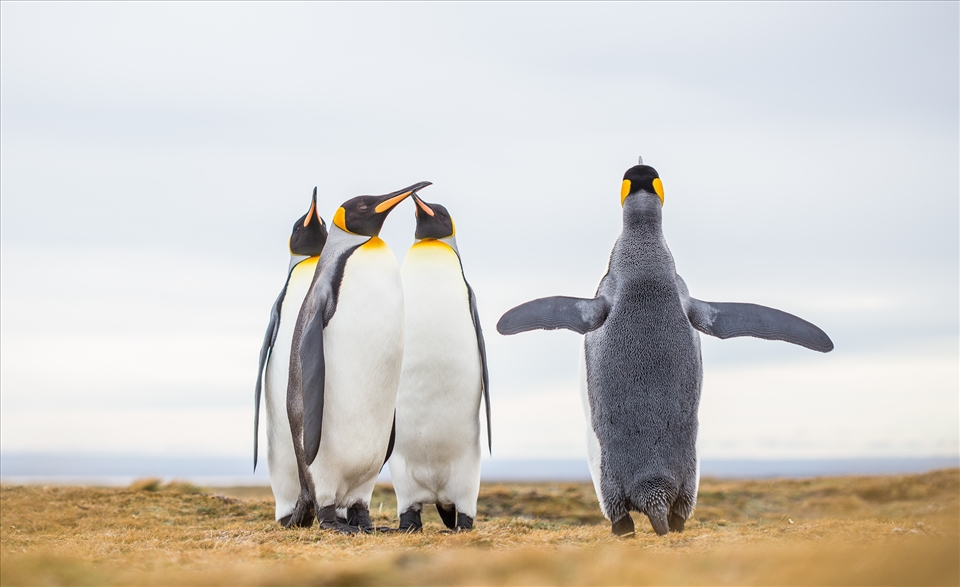
CHILE | Sunday, 2 November 2014 | Views [1306] | View Smaller Image
The southern tip of South America is also the vast continents largest island and is known as Tierra del Fuego or 'Land of Fire'. It is separated from the mainland by Magellan's Strait, coined by the Portugese explorer Ferdinand Magellan when he was commissioned by the Spanish to lead exploration to the East Indies. To reach the Pacific Ocean from Europe he travelled across the Atlantic and found Magellan's Strait which enabled access to the Pacific without going down towards the treacherous waters off nearby Antarctica.
Being in such close proximity to Antarctica, at the time Magellan passed through Tierra del Fuego there would have been many colonies of King Penguins (Aptenodytes patagonicus), which can grow to one metre tall. However, the waves of colonisation that ensued resulted in such pressure from humans on their populations from land clearing, development and even as food and for export, that none would remain in the not too distant future. In recent years, however, a colony has returned to a protected bay off the north-western coast of Tierra del Fuego, and while not yet remarkably successful they have managed to produce a few offspring.
This photograph was taken very early one morning and was the second time we had gone to observe the colony. On this occasion we were early enough that no other humans were around and the normally cautious penguins, which prefer to stay on the opposite side of a small river to their human observers, decided to cross the river en masse and explore their surrounds. We sat there, completely still, as troupes of them came right up to us, seemingly as curious about us as we were of them. These four came within metres of me and started singing a song while one of them turned around, seemingly to conduct their musical endeavour. Moments later they continued their exploration, however that moment is one that I will never forget.
Tags: penguin, king penguin, tierra del fuego, land of fire, chile, magellan, nature, wildlife